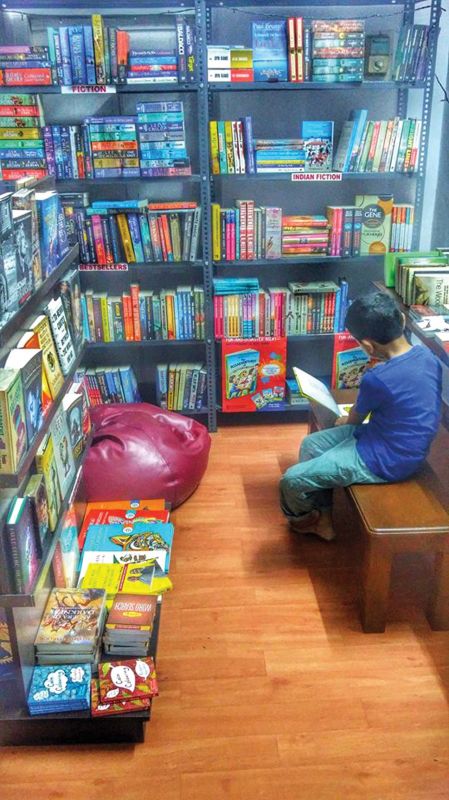Books, always our best friend
In Kerala, online writers are coming together to print their work.

A true reader always finds pleasure in holding a book and skimming through pages accompanied by the scent of a fresh print. A writer’s ultimate wish is to see his or her words printed and published.
The technodazzled couldn’t be more wrong when they thought printed books are at the fag end of their existence. The biggest news to come out last month was that printed books are making a big comeback. Reports pointed to the dwindling numbers of online e-book subscriptions with Sony shutting down its e-reader, Amazon opening a bookstore and a few publishers no longer selling the e-book version on Kindle. This has turned out to be one of those rare cases where technology lost to tradition.
In Kerala, this trend has worked in tandem with online writers. Bloggers and members of online writing communities are coming together to get their works published in printed books, thereby merging the electronic and print book boundaries and making way for literature to grow.
 A child reads at The Reading Room in Thiruvananthapuram.
A child reads at The Reading Room in Thiruvananthapuram.
The most recent publication to come out owing to the efforts of a huge literature loving online community is the book Neelachumaru.
Neelachumaru was published by Timeline Publishers, a group of young men who wanted to give passionate writers an opportunity to see their works printed. Akhil Ramesh, one of the founders of Timeline Publishers, says, “Hisham, Midlaj and I met on Twitter a year ago. Midlaj is popular online and our first step was to bring out his short stories. There are plenty of bloggers and online writers who don’t find publishers.”
“There are talented writers who convey a message in just 140 characters. Many of them told us the difficulty of getting a freshers' work published. That is how we took it as a challenge to introduce freshers from Twitter and to come up with an anthology of short stories. We received more than 200 stories out of which we shortlisted 11.”
So came Neelachumaru, a name inspired from the colour scheme of Twitter. Akhil, who is a final year B.Tech student, adds, “We were warned about the risk that comes with distribution. We were told no one wants to read printed books anymore. But so many of them did. In less than a week, we covered nearly 300 orders without any publicity.”
Ajith Kumar, a popular online writer who published his book Ottathulli Peythu, says, “I’'m not sure if it can be called a comeback. But social media has sparked an interest in reading. Everyone started expressing their views and more people have begun to write and publish. The wave online space has created has definitely reflected in the book industry. People usually lament that social media has killed reading, I do not agree. The publishing industry which was quite dull some time back is awake now.”
Ajith Kumar throws open another angle. “Ours is a very traditional industry that accepts a writer only if they have published a book and for the same reason, many are forced to self-publish. I also feel that since so much content is available online, people publish to be different from the clutter.”
For Archana Gopinath, founder of the Reading Room, books have never been outdated. “I’ve always felt that voracious readers still prefer physical books. They’d opt for e-books only at times — like a space constraint, convenience, especially while travelling. I somehow haven’t seen e-books completely replacing a collector/reader’s hardbound collection. On the other hand, e-books may be assumed to have brought the reading habit to a lighter reader where the convenience, cost effectiveness and access to books might encourage the habit. Another reason why I cannot find an e-book revolution is that as a parent, I wouldn’t want my child staring at a lit screen for hours to read. I’m sure there are other parents who feel the same way. I have been in contact with a couple of local publishing firms started by youngsters — like DreamBookbindery by Vishnu, kraft comics, children’s publishers like Tulika etc. The presence of such young blood in the business also shows that printed books are definitely not on their way out.”

